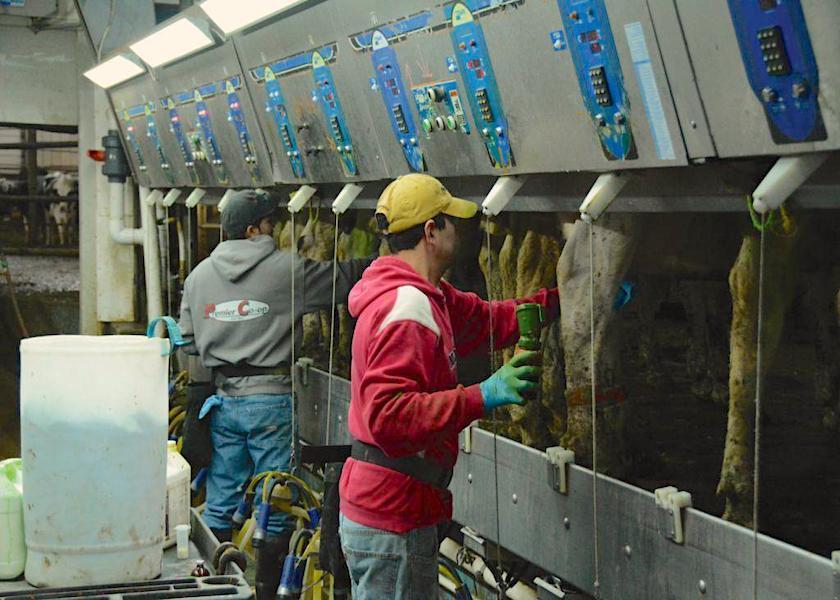Offer Proactive Steps Instead of Strikes to Keep Employees

One, two, three strikes you’re out. While this saying goes hand in hand with baseball, some farmers are wondering how many strikes until they let an employee go, as they deal with one issue after the next.
According to Stan Moore with Michigan State University Dairy Extension, the first step is to decide what constitutes as a strike.
“This needs serious thought by the producer,” he says. “What does tardy mean and how tough do we want to be?”
Moore says producers need to ask themselves what policies they want to be strict with and what areas they can be more lenient with. For example, is it okay if an employee is occasionally tardy by five minutes?
“Three tardy strikes might cause you to lose an otherwise great employee,” he says. “First, it's best to find out what is going on that is making them tardy. Is it something that the owner or manager could help them figure out?”
Moore believes that automatic strikes should include things like willful disregard for a rule that employees know the boss means business about.
“What I believe is better than three strikes and you’re out, is a progressive discipline plan that the employer is committed to following through on,” he says.
Give Steps Instead of Strikes
If a dairy is going to have a “three-strikes, you’re out” policy, Moore suggests having it outlined for employees to be aware of. Instead of strikes, he recommends offering the following steps to help combat labor headaches and issues.
- Start with a verbal warning. You don’t have to say how many verbal warnings they get, but they do deserve a warning to let them know what they’re doing isn’t how you want to conduct business.
- Proceed to a written warning. The same rules apply, you can give more than one.
- Implement a performance improvement plan. A performance improvement plan is something that the employee agrees to. If they won’t sign it, then they have made the decision to quit. If they do sign it and don’t complete it to the manager’s satisfaction, there can be a discussion about why. This can lead to a mutual termination or employer-driven termination.
Moore adds if an employee signs it and shows signs of improvement, then you just kept an employee that was worth the additional investment of time.
Farm Handbook
The National FARM program encourages producers to have a company handbook on file. A handbook would cover several policies, including disciplinary actions.
An example disciplinary policy follows:
[Farm Name] retains the sole right and discretion to determine discipline for unsatisfactory job performance and misconduct. Discipline may include a warning, suspension, loss of benefits, or immediate dismissal. Nothing in this policy changes the at-will nature of employment with [Farm Name].
While not an exhaustive or exclusive list, the following are some examples of the types of actions that can result in discipline up to and including termination of employment:
- Unsatisfactory job performance.
- Unauthorized or repeated absences, tardiness or early quitting.
- Violation of any farm policy or guideline.
- Unprofessional, abusive, or disruptive language or behavior.
- Violation of policy against harassment.
- Failure to use safety precautions.
- Violation of the alcohol and drug policy.
- Theft.
- Workplace violence or weapons policy violations.
- Acts of animal cruelty.
Unemployment Claims
Finally, the employer should also consider how to deal with potential unemployment benefit claims by a dismissed employee. For an employer who pays unemployment taxes, the contribution will increase if unemployment claims are charged to the farm. The unemployment statute disqualifies employees who were dismissed for misconduct from receiving unemployment benefits. This can vary from state to state, so make sure review your state’s unemployment benefits description.
The labor market is no longer what it used to be. Liz Griffith with Encore Consultants says it can be challenging to find valued employees who have the desire for farm work and fit your culture.
“Retaining a poor employee can cost your business more. More money, more time and more employees,” she says. “Knowing when to ‘let go’ is crucial to your team's success.”
To download a farm handbook template, go to nationaldairyfarm.com. This handbook was developed, with permission, from a template that Stan Moore put together for Michigan State University Extension.







